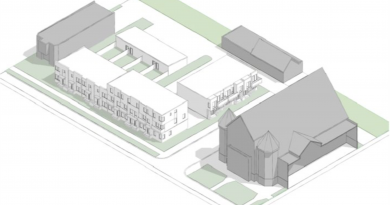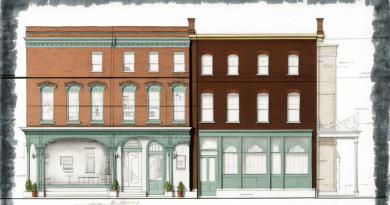Policy Point: Limiting Rent Increases
I’ve heard plenty of horror stories recently of rental increases resulting in people getting kicked out of apartments and having to move. In Royal Oak, Michigan, for example, when a long-term tenant paying $1,025 a month was asked to start paying $1,300 a month (and bought a house in Detroit instead), a 27% increase. In Detroit, where a long-term tenant paying $900 was asked to start paying $1,200 a month (and instead moved into a four bedroom house), a 33% increase. My old place was $1,000 a month, and the landlord wanted to increase our rent to $2,700 a month.
Rental increases are, in our free market economy, quite legal, except where prohibited by rent controls, which only exist in a few select cities in North America but are being discussed across the continent as cities become crazily unaffordable a decade after the 2008 market crash. I’ve found that rental advocacy is focused, effectively but in a limited scope, on preventing homelessness, illegal evictions, and unsavory landlordly practices, and the discourse around rental advocacy usually pushes vaguely toward rent controls, because apparently no one knows how to build permanent affordable units or encourage large-scale development that could maybe decrease upward pressures of rental rates.
Realtor.com’s Senior Editor Rachel Stults mulled this over in what sounds like a somewhat desperate concession in a 2015 article:
Community members pushed recently for rent control in my city, but local officials seem to favor increasing housing stock over enacting laws.I know it’s the price I have to pay for living in a tech bubble hot spot. The market can bear that 25% rent increase, and so it will. In the end, I chose to ride out one more year in my apartment and save like crazy.Maybe this time next year, I can say hello to homeownership and goodbye to my landlord—for good.
Next year, in the holy land, the yeoman homeowner is coming back, and all will be well! Next year, we’ll stop having to bear these crazy rent increases. In Detroit, I’ve covered this topic ad nauseam and came down pretty clearly on the fact that even gentrifying the hell out of the 7.2 would result in less expropriation than the city’s tax foreclosure epidemic, but it’s still a problem because gentrification plus expropriation sets precedents– and creates a concurrent opportunity for regulatory reform (NB: not rent control).
Let’s look at some policy examples: Ontario law sets guidelines for rental increases through the Residential Tenancies Act (S.O. 2006 c. 17), first passed in 1991, but these are not binding guidelines. The province’s Rental Fairness Act, passed this May, attaches a few strings to increases beyond the guideline levels of increases, which roughly track inflation. It’s somewhat unclear what this will mean for the Ontario market, since new housing units, as I’ve also explored, are by and large way more expensive than depreciated units, but developers claim it is limiting new development because they can’t increase the rent however much they want in new buildings.
Market urbanists believe that we can solve this entire problem by building more, more, more, something Stults referred to as well. The problem is that this is easier said than done in geographies that have messed up capital markets where math doesn’t work (like, oh, I don’t know, the Rust Belt). And we in North America love the free market, and we view things like price controls as a threat to a free state.
There’s plenty of evidence that rent control doesn’t really work to make markets more affordable because it restricts access to the market. But why the hell does everyone have to live in New York City or San Francisco? In Detroit, why must everyone live within the 7.2? Restricting rent increases to a modest, say, 5-10% per year could imaginably result in pushing development outward from the urban core and encouraging development of new housing, either single family or small multifamily within neighborhoods, or higher-density development along corridors. There’s enough land, which is the key thing that drives up prices in markets where demand pushes prices above the cost of construction.
Lin Ye (in Invisible City, 2008) cites the importance of grassroots tenant organization in producing a robust housing policy around rent control. Maybe it’s time we started this in Detroit– the city’s legacy of grassroots organizing around community development could pair with a comprehensive strategy that would limit rent increases, guarding the urban core from crazy rent increases (which would offer a normalized upward trajectory in rents over time), thereby encouraging more development to radiate out from the core. Certainly the Duggan administration will not in an election year want to float any policy that is not deemed as being completely servile to the interests of bazillionaires and developers. But it’s worth a shot.



